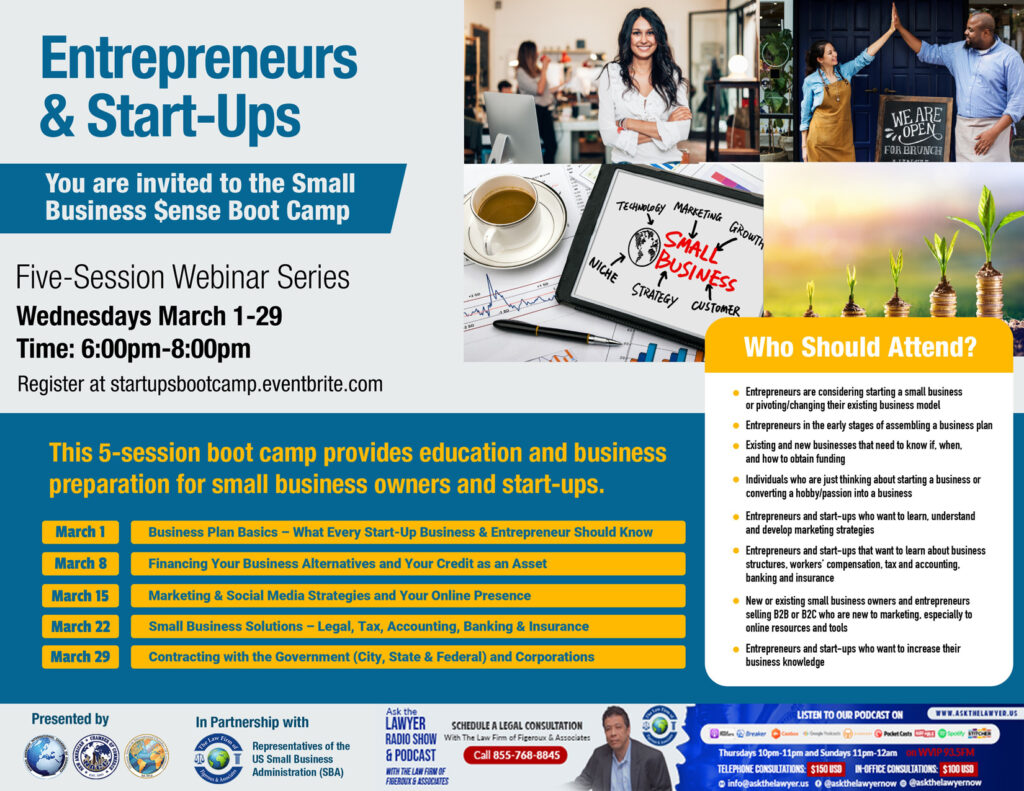- January 21, 2023
- Posted by: admin
- Category: Businesses

Share this via:
When you start a business, you have so many things to do and consider. One concern in the back of your mind is whether your start-up will make it through the first few years, the most difficult for any business. The statistics are sobering. 90% of small business start-ups fail and 2 out of 10 fail in the first year they open. To avoid this fate, you must know and understand the reasons start-ups fail, so you can tilt the odds in your favor. Here are the 5 most common.
1. Running out of cash.
The most important concern for any start-up is having enough money to keep the business alive. If a company runs out of cash, it will cease to exist because no investor will want to invest more money in an existing company that’s already failing. While this may sound obvious, many companies fail because they fail to understand how much money they need and how fast it can run out.
A good rule of thumb is that you always need 4 months’ worth of monthly expenditures available in your bank account. This allows you to pay your suppliers on time, hire new employees if needed and help with marketing expenses such as advertising or sending out free samples, etc.
Maintaining a reasonable cash cushion to help you get through the start-up period will increase the odds of your business making it through the first few years.
2. Hiring too fast.
A common mistake made by start-ups is hiring too fast. When you are small, it’s tempting to hire for growth. But if you hire too fast and your business model is not yet tested, this can lead to lots of turnover and dead weight. Hiring requires a lot of time and effort from everyone involved.
When you hire someone, they’re part of your team and their work will have a major impact on your company culture and productivity. It’s hard to find the right person for a job, so do your due diligence before hiring someone new into your company! Take your time with the hiring process, especially if you’re looking for someone who can help build your company culture from the ground up.
Remember, culture doesn’t happen overnight. It takes time to build rapport with new hires and show them why they should be excited about being part of your team. And if there’s any doubt whether they can fit in, don’t hire them!
3. Product without a market fit.
One of the most common reasons for a start-up failure is that the product does not have a market fit. This means the product doesn’t meet the needs of the market and therefore doesn’t solve a problem.
One reason is the product is not differentiated enough from its competitors. If your product doesn’t stand out from other similar products, why should consumers choose yours?
Another reason is the product is complicated or difficult to use. Ensure this doesn’t happen by conducting user testing sessions and collecting feedback on how people use your product or service. You can then use this information to make changes, so it’s easier for customers to complete tasks and achieve their goals with your product.
4. Pivoting without a plan.
Pivoting is a strategy to test different business models. It’s used by companies like Airbnb and Uber, who continue to change the way they do business despite their initial success. They’ve pivoted several times to keep up with changing customer preferences and technological advancements. This has helped them stay ahead of the competition.
Yet it isn’t always possible for start-ups to pivot on a dime like some companies did. If you’re not as financially secure or don’t have access to investors who can fund your new business model, pivoting might not be an option for you either. It could mean having to shut down your original business altogether–and no one wants that!
If you want your new idea or product line off the ground quickly but are worried about losing money during the process (since there will be costs involved), consider hiring someone who can help steer the ship while you figure out what direction it should take next!
5. Scaling too quickly.
You know that feeling where you’re so excited about your new business idea that you immediately start building it? Slow down! Stop and think about your proposed solution and whether it solves the problem you’re trying to solve. If it does, make sure it works–before you scale. One reason startups fail is that people are frustrated with a product and won’t buy it. They’ll tell their friends and family not to buy it either.
Many entrepreneurs don’t realize when they are scaling too quickly. They may be in such a rush to get their product on the market that they overlook how it will be used, how it can be improved, and whether its performance meets the needs of its users.
Conclusion
Now you know some of the most common reasons start-ups fail. Keep them in mind, so it doesn’t happen to you.

